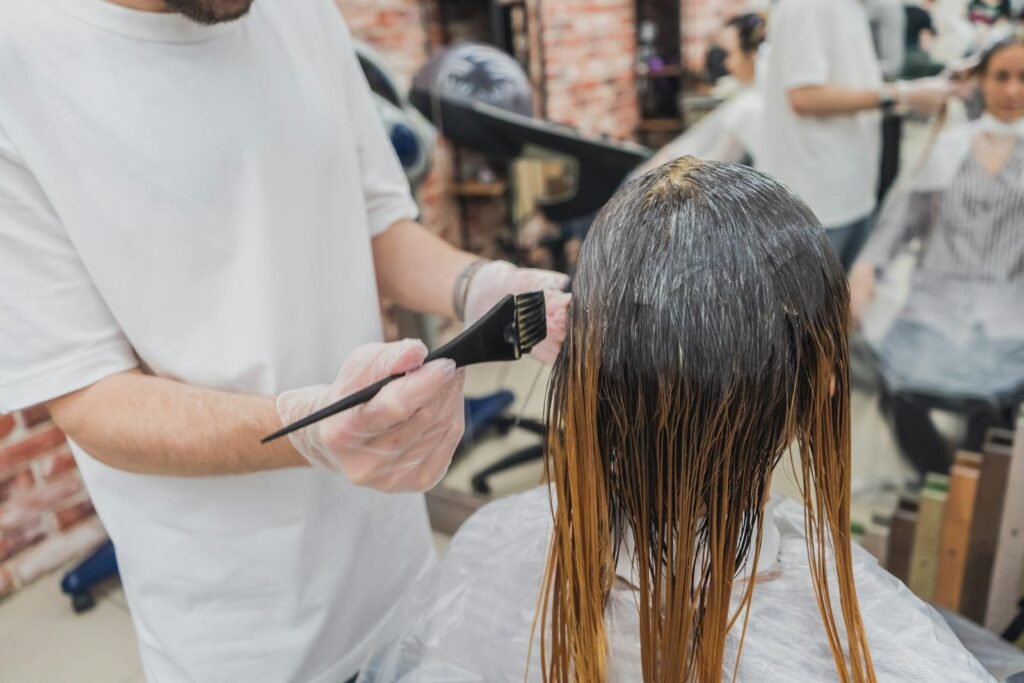
July 22, 2025 — Thousands of women across the United States are taking legal action against the makers of chemical hair relaxers and straighteners, alleging that these widely used products have led to serious health problems, including uterine and ovarian cancer.
These lawsuits are driven by a growing body of scientific evidence, highlighted by a pivotal 2022 study from the National Cancer Institute, which indicated that women who used chemical hair straighteners had a markedly higher risk of developing uterine cancer. At present, attorneys are filing claims on behalf of women who believe their cancer diagnoses are linked to the long-term use of these products — and they contend that the manufacturers failed to sufficiently warn the public about the potential risks.
Cancer Link Sparks National Legal Battle
The main assertion in the lawsuits is that certain hair relaxers and straighteners contain endocrine-disrupting chemicals such as formaldehyde, phthalates, parabens, and Bisphenol A. These chemicals can interfere with hormone regulation and increase the risk of reproductive cancers. The scalp is particularly susceptible to absorbing these substances, especially when users experience burns or lesions during application — a common problem with relaxers.
Moreover, heat-styling tools like flat irons and blow dryers can worsen the issue, as high temperatures may release even more harmful compounds from these products.
A number of studies conducted between 2022 and 2023 have reinforced these concerns, including research from Boston University that found a 50% increased risk of uterine cancer in postmenopausal Black women who used relaxers more than twice a year for over five years.
Who Is Affected?
Individuals who frequently utilized chemical hair straighteners or relaxers, whether at home or in salons, and were subsequently diagnosed with breast cancer, uterine, endometrial, or ovarian cancer might have the right to pursue legal action. Additionally, family members of women who have died from these illnesses may also be eligible.
These lawsuits primarily affect Black and Latina women, to whom these products have long been marketed as tools for achieving “manageable” or “professional” hair textures.
Major Brands Named in Lawsuits
Dozens of hair product brands are now under legal scrutiny, including:
- Dark & Lovely
- Soft & Beautiful
- Just for Me
- Mizani
- L’Oréal
- ORS Olive Oil Relaxer
- Africa’s Best
- TCB Naturals
- Profectiv
- UltraSheen, and more.
While this list is not exhaustive, attorneys are encouraging anyone who used any form of hair relaxer and developed cancer to come forward.
The lawsuits fall under multidistrict litigation (MDL), which allows individual cases to be consolidated in a single federal court for efficiency. As reported by the U.S. Judicial Panel on Multidistrict Litigation, there are over 8,000 cases awaiting resolution as of early 2024.
Attorneys representing plaintiffs say that compensation could cover:
- Medical bills
- Pain and suffering
- Loss of income
- Emotional distress
- Funeral expenses (in fatal cases)
While no payouts have been confirmed, law firms estimate settlement amounts could range from $100,000 to over $1.5 million, depending on the severity of the illness and other factors.
Will There Be a Formaldehyde Ban?
In late 2023, the FDA revealed plans to prohibit formaldehyde and chemicals that release formaldehyde in hair-straightening products because of their recognized health hazards. While no regulations are currently in place, the agency intends to enforce stricter guidelines — which could impact both professional salon products and those for home use.
In the meantime, advocates and legal experts emphasize the importance of awareness, particularly for women who might have been using these products for years without being aware of the associated risks.
How to File a Lawsuit
Lawyers collaborating with ClassAction.org are providing complimentary case assessments for individuals who think they might have a valid claim. Affected parties can complete a brief form to consult with an attorney — and there are no fees unless compensation is granted.
Consumers are encouraged to move swiftly, as every state has its own statute of limitations, potentially restricting the time available to file a claim.
“Many women have only recently learned that their cancer could be connected to decades of using chemical hair relaxers. For some, this information came too late. Others still have time to seek justice,” said one attorney involved in the MDL.
With the first bellwether trials expected to take place in the next year or two, the outcomes may impact future settlement negotiations.
If juries favor the plaintiffs in these early cases, it could pressure manufacturers to offer substantial settlements.
Meanwhile, lawyers are actively building their cases, reviewing medical records, and preparing claims — as thousands of women step forward, seeking both accountability and transparency.
Please enter product(-s) ASIN(-s)!


